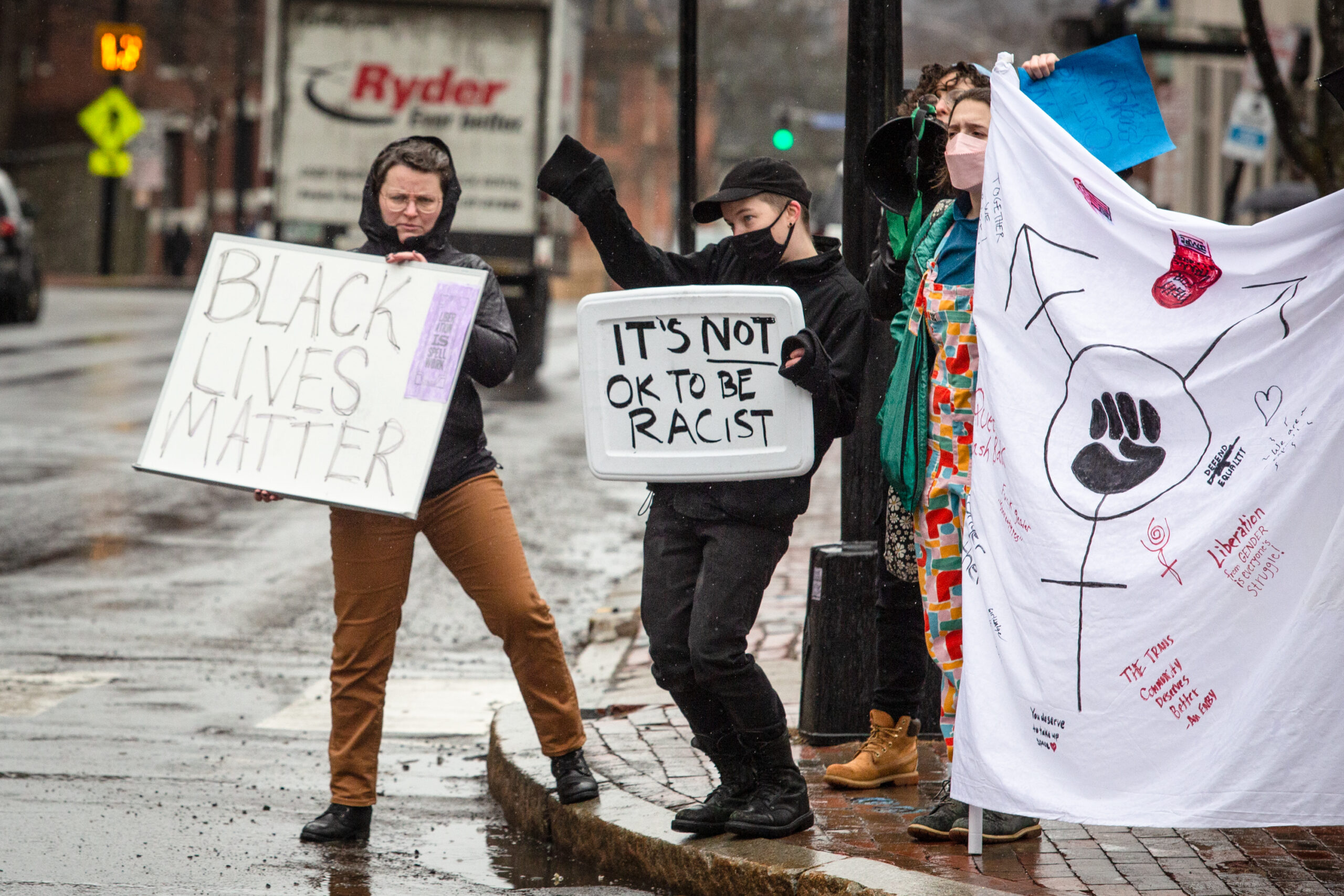
Springfield neo-Nazi compound sold, but worry remains|
The neo-Nazi compound in Springfield has been sold, but leaders of advocacy groups and watchdog organizations in Maine aren’t celebrating.
They believe the leader of the hate group who departed from the small town in northern Penobscot County last month has just been driven further underground, making him and others like him more difficult to find.
In an online statement after news of the sale broke, neo-Nazi Christopher Pohlhaus, the founder of Blood Tribe and former co-owner of a 10.6-acre property in Springfield, said his mission to make Maine a white ethnostate has not faltered.
His threat is not being ignored.
“My concern has not lessened. I don’t believe this one sale of property really changes the fact that far right extremists and white nationalists continue to grow in presence in Maine and nationwide,” said Bre Danvers-Kidman, co-executive director of Maine Transnet, a transgender group focused community organization.
After months of touting the militant prowess of his Blood Tribe members and targeting LGBGTQ+ gatherings in Ohio, Wisconsin and Florida, Pohlhaus said in an online posting on Oct. 30 that the public outcry against him and his group made it too dangerous for white families that might stay at the Springfield property.
As news of the property sale spread, many Mainers rejoiced in what they believe is Pohlhaus’ departure from the state. On one Reddit thread, more than 300 people expressed their delight.
Polhaus said that the Springfield property is only one of several Maine properties he owns.
For Abdi Iftin, a U.S. citizen who immigrated from Somalia to Maine nine years ago and now lives in Yarmouth, it’s scary not knowing where neo-Nazis are.
“They could be right there at the gas station where I am getting the gas,” Iftin said. “They could be out there at that lobster restaurant where I am enjoying a delicious dinner.”
In the past year, hate motivated actions — anti-semitic fliers, verbal assaults, intimidation and neo-nazi rallies — have occurred with regularity around the state. And although not legally considered hate crimes, they spread fear, said Jeff Tischauser, a senior research analyst with the Southern Poverty Law Center.
“Pressure from lawmakers and community members does seem to have worked in this case, but it’s too soon to stop applying this pressure on groups like the Blood Tribe who want to establish a presence in Maine, “ Tischauser said.
Federal hate crimes in Maine have quadrupled in recent years, according to the Department of Justice’s most recent numbers. In 2019 there were 19 reported crimes; in 2020, 40; and in 2021, 76. Of those 2021 numbers, 59 were against people and 26 against property. Race, ethnicity and sexual orientation were the primary bias motivators.
In that same three-year span, five Maine men were federally indicted for race related crimes.
“There is more racist behavior in the state than many people realize,” said Michael Alpert, Greater Bangor Area Branch NAACP president. “People of color are not being paranoid. There is reason to be worried.”
In 2021, Maine had nearly three times as many federal hate crimes as in Mississippi, a state with three times the population. Other states with populations higher than Maine, also had fewer hate crimes including Florida with one; Vermont, 40; Rhode Island, 19; and West Virginia, 58.
Although 2021 was the first year annual hate crime numbers were reported through the FBIs National Incident-based Reporting System, some law enforcement agencies may not have submitted their crime data in that manner, according to the DOJ.
The Department of Homeland Security and the Federal Bureau of Investigation have identified white supremacy and neo-Nazi groups as the most lethal threat to the nation. And while there have been no high profile neo-Nazi attacks in Maine, the threat exists, according to Maine State Police.
As Maine-based neo-Nazi groups grow and expand membership, Iftin said what really scares him every night is questions about what these groups are planning.
“I don’t know if I will ever go to bed not afraid in Maine,” he said.
Iftin saw neo-Nazis at an August rally in Augusta and in April in Portland.
“I was looking them right in the eye and it was really scary to see these militarized men, they looked like an Army,” Iftin said.
Still, despite the inherent risk, Iftin said he will not let white supremacists stop him.
“Maine is my home,” Iftin said.







